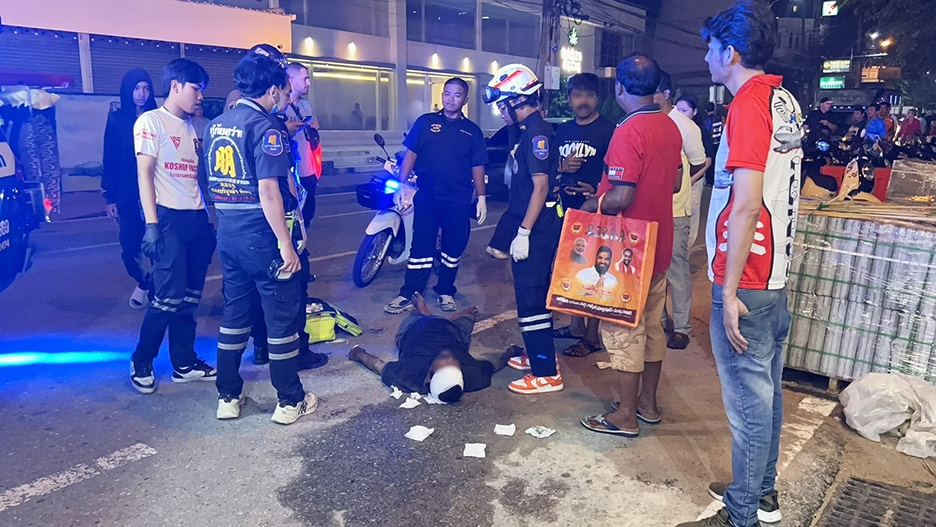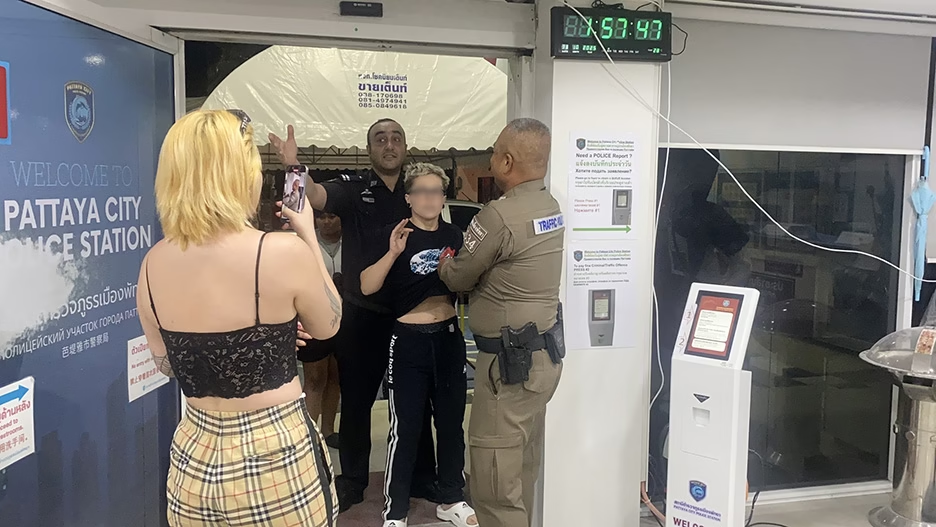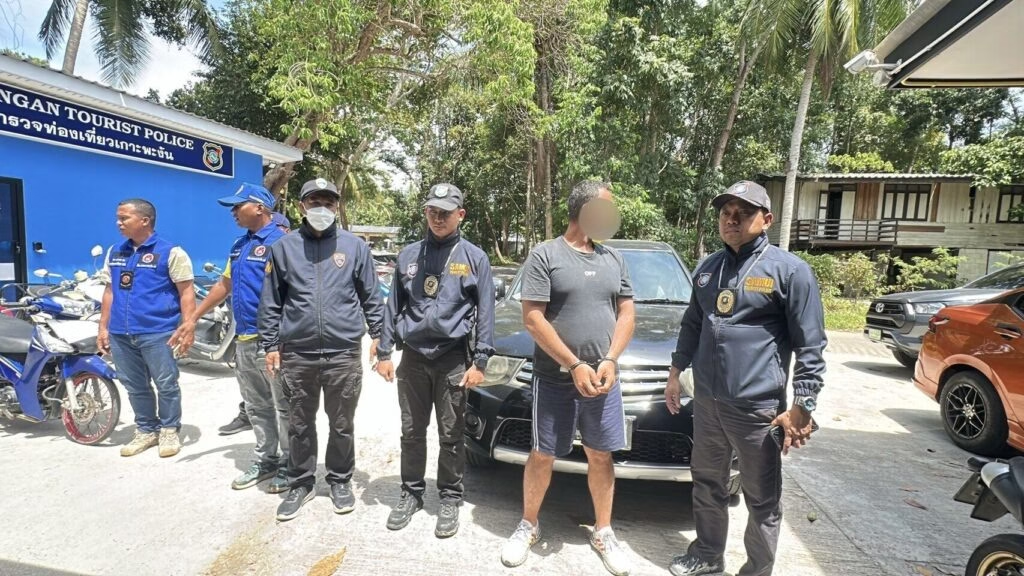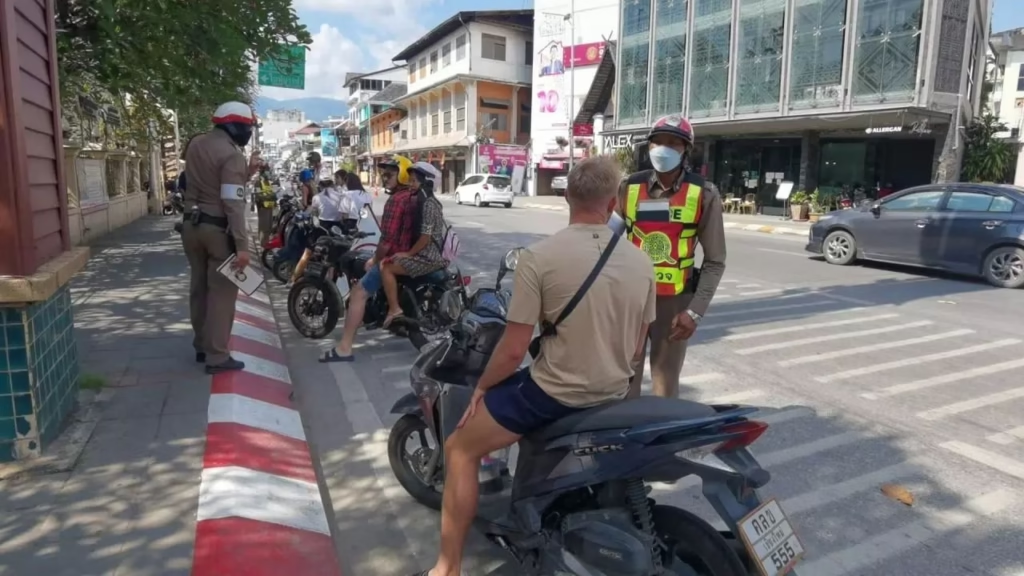PATTAYA — Thailand’s famous beaches and nightlife, long sold on easy escapism, are changing course. Tourists bring in more than 2.5 trillion baht a year, so the stakes are high. Authorities are taking a harder line with visitors who break the law.
A series of arrests in Pattaya and Koh Phangan highlights a broader push to protect the country’s image from a small but disruptive minority. Police Lieutenant General Saksira Phueak-am, head of the Tourist Police Bureau, said Thailand remains welcoming, yet respect for local rules is not optional. He warned that poor behavior will no longer stain the country’s shores.
The clampdown comes with travel roaring back. More than 35 million arrivals are expected in 2025, a new peak beyond pre-COVID numbers. At the same time, clips of public indecency, assaults, and illegal ventures have fuelled anger at home and scrutiny from abroad.
Phuket’s traffic blitz picked up more than 100 foreigners. Drug patrols along Bangkok’s Sukhumvit Road added to the tally. Tourist Police rolled out the Thailand Tourist Police app, with 24-hour helplines and live chat in five languages. The signal is clear: respect the rules or face Thai law.

Indian Tourist Knocked Out
Two incidents in Pattaya on 13 October show how tensions are boiling over. At about 12.46 am, outside a busy market on Pattaya Second Road in Nong Prue, a 35-year-old Indian visitor was spotted urinating against a fence.
Witnesses said he appeared drunk. A local confronted him. The row turned violent. The Indian tourist was knocked out, suffered a serious head wound, and was taken to Pattaya City Hospital.
Pattaya Police Lieutenant Colonel Kittipong Ratchata said the fight began after the act of public indecency. He noted that Section 388 of the Thai Penal Code covers such behavior, with penalties of up to one month in jail or a 1,000 baht fine.
It was not the first time, either. Back in January, five to six Indian tourists were filmed urinating into the sea at Pattaya Central Beach. The clip went viral and drew anger online. Warnings followed, but there were no arrests. That leniency has faded. Ratchata said education campaigns had not worked and that firm enforcement is now the priority.
Brazilian Tourists Arrested
By 2.00 am, a second case flared on Beach Road near Soi 9. Officers stopped a 31-year-old Brazilian woman, named Dayane Silva, who was riding a motorbike the wrong way without a helmet. The traffic offenses could have led to a 500 baht fine.
Instead, the stop turned violent when Silva allegedly punched Deputy Traffic Inspector Police Lieutenant Siwakorn Somsura in the face. Onlookers and officers restrained her as Lt Siwakorn, bleeding but composed, called for support.
Silva now faces charges of assaulting an officer and obstructing official duties, with penalties of up to two years in prison under Sections 136 and 365 of the Penal Code.
Pattaya Police Chief Police Colonel Apichai Krobpetch told the press that officers put themselves on the line to keep tourists safe, and that attacking them harms everyone. Bodycam footage of the incident has fuelled calls for tighter visa checks and swift deportations.
The Brazilian embassy has been notified. Sources say it is unlikely to step in.
Lebanese Man Busted
On Koh Phangan, famous for full-moon parties and clear bays, officers tackled a different kind of rule-breaking on 13 October. Tourist Police raided a makeshift vehicle hire spot outside the Key King shop in Moo 1 and arrested a 46-year-old Lebanese man, Jon Hassan.
Officers said they caught him refueling a scooter for a foreign customer. They seized 12 motorbikes and one car. Hassan, who was on a TR-60 tourist visa and had no work permit or license, admitted to earning thousands of baht a week from tourists.
The case stung because it was a repeat. Hassan had been deported in June for the same offenses, running an illegal rental that undercut local firms and hired out poorly maintained vehicles. Police Lieutenant Colonel Winit Boonchit of Tourist Police Division 5 said Hassan had been blacklisted, yet managed to return on a tourist visa.
He called the operation blatant exploitation. The Foreign Business Act carries penalties of up to five years in prison and fines of up to 1 million baht for such activities by non-Thai operators.
Many locals on Koh Phangan have already protested against a wave of foreign-run ventures, from yoga studios to bike hires. Fisherman Somchai Boonmee, 52, who complained, said the island is not a free-for-all.
Riding Without Helmets
These incidents are part of a wider pattern. In September, Phuket’s checks led to more than 100 arrests for riding without helmets and drink driving. Koh Phangan has seen a string of raids on unlicensed rentals run by Russians, Israelis, and Hungarians.
The Tourist Safety Operations Center, set up in January, now works with embassies and tracks hotspots. Analysts say the problem goes deeper than simple rule-breaking. Dr Supachai Tangwinit of Chulalongkorn University argues that overcrowding can breed entitlement and that visitors forget Thailand is not a lawless playground.
For most travelers, the guidance is simple: download the app, follow local laws, and keep it respectful. As Lt Gen Saksira put it, visitors should come for the smiles and stay for the calm, but never at the cost of social harmony. With high season near, enforcement is tightening.
The party is still on, just not for the party crashers.

















